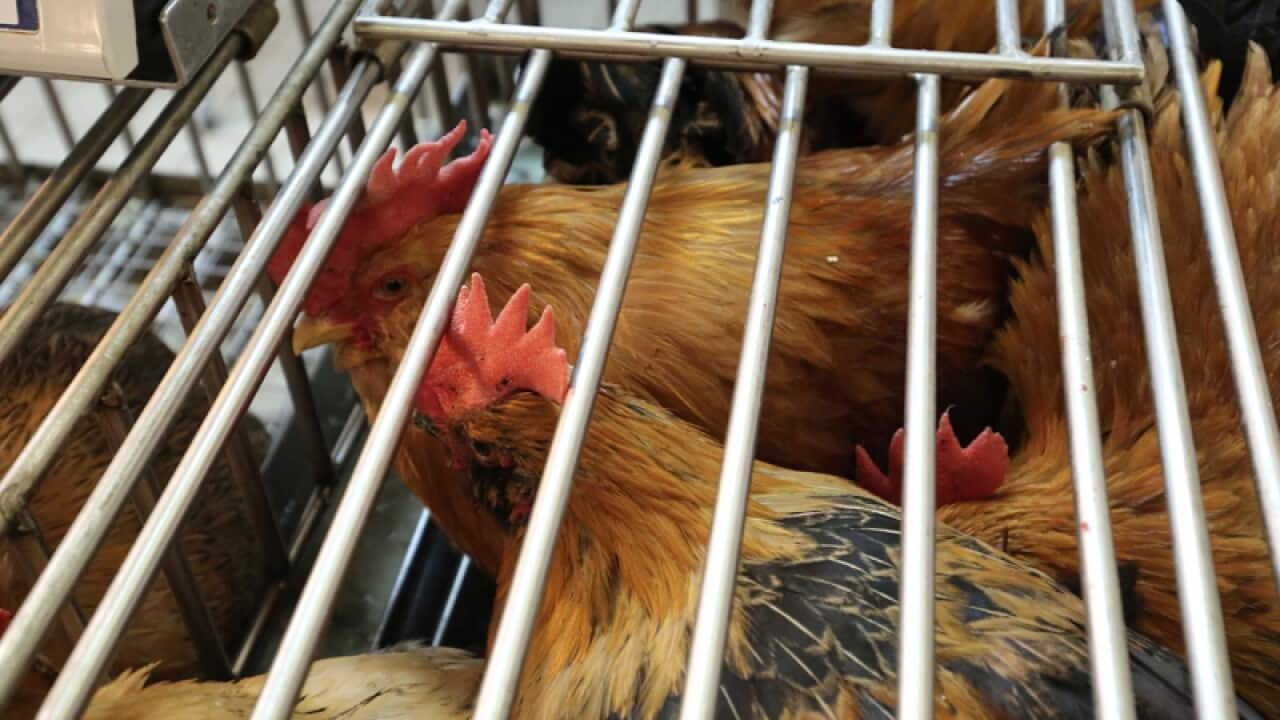China is the latest country to implement emergency measures to contain the spread of avian influenza, with two towns suspending the trade of poultry after two people died after being infected.
India, Japan and South Korea are also trying to contain outbreaks.
The eastern Chinese city of Wuxi has halted the trade of poultry after human bird flu infections were reported in neighbouring provinces.
Wholesale poultry markets have been shut down, with outside poultry banned from being brought in.
It’s the second Chinese city to suspend trade after seven people caught the H7N9 strain this winter. Two have died, but the government says a widespread outbreak is unlikely.
"We usually eat eggs a lot, but I feel very anxious that the price of eggs has increased so much."
"We always carry out strict management of live poultry markets. In previous years, risks of bird flu and human bird flu infection might exist in live poultry markets according to our observations," China’s national health and family planning commission spokesman Mao Qunan told reporters earlier this week.
"So far, experts believe possibilities of individual cases exist, but risk of large-scale human infection cases is pretty low."
Chinese authorities have banned poultry imports from more than 60 countries. The country’s last major outbreak in 2013 killed 36 people, and officials are determined to prevent a repeat.
On Tuesday, authorities in India's eastern Odisha state culled 2,500 birds after seven tested positive for the highly pathogenic H5N1 virus. The strain is known to infect other animals, and occasionally humans. Japan is also racing to contain its first outbreak in nearly two years. Chickens have been culled this week in the Southern Miyazaki prefecture. Nearly 800,000 have been slaughtered across the country after a number of outbreaks were reported in the last month.
Japan is also racing to contain its first outbreak in nearly two years. Chickens have been culled this week in the Southern Miyazaki prefecture. Nearly 800,000 have been slaughtered across the country after a number of outbreaks were reported in the last month.

File image of an elderly Chinese man buying chicken at a food market in Huaibei city, east China's Anhui province. (AAP) Source: AAP
Still battling its worst ever bird flu outbreak is South Korea. First appearing in mid-November, infections have spread at a record pace. Over one-fifth of the the country’s poultry population has been culled in an effort to contain it, sparking a nationwide egg shortage. Some grocery stores are limiting the amounts of eggs customers can purchase.
"We usually eat eggs a lot, but I feel very anxious that the price of eggs has increased so much. Limiting sales to one tray per person and high increment of prices compared to the past worries me," said 63-year-old shopper Oh Jom-Soon.
Avian influenza occurs more commonly during winter. Strains of bird flu have also been identified in Europe and Israel.











